GATE Past Year Questions: Flow Through Pipes | Fluid Mechanics for Mechanical Engineering PDF Download
Q1: In the pipe network shown in the figure, all pipes have the same cross-section and can be assumed to have the same friction factor. The pipes connecting points W,N and S with point J have an equal length L . The pipe connecting points J and E E has a length 10 L. The pressure at the ends N, E and S are equal. The flow rate in the pipe connecting W and J is Q. Assume that the fluid flow is steady, incompressible, and the pressure losses at the pipe entrance and junction are negligible. Consider the following statements:
I. The flow rate in pipe connecting J and E is Q/21.
II. The pressure difference between J and N is equal to the pressure difference between J and E.
Which one of the following options is CORRECT? [GATE ME 2024]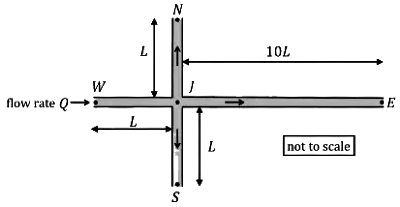 (a) I is True and II is False
(a) I is True and II is False
(b) I is False and II is True
(c) Both I and II are True
(d) Both I and II are False
Ans: (b)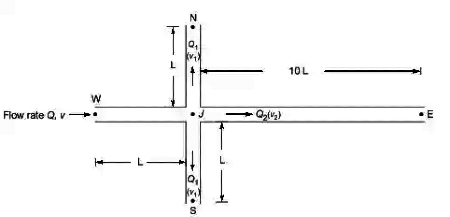
Due to symmetry ( PN = PS ) and equal length and friction factor flow distributed in JN and JS will be same. Let it be Q1 .
From continuity, flow in J E =(Q − 2O1)
PN = PE = PS [Given]
From (A) and (B),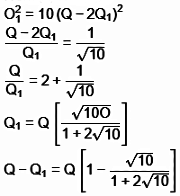

Hence, correct option is I is False and II is true.
Q1: A high velocity water jet of cross section area = 0.01 m2 and velocity = 35 m /s enters a pipe filled with stagnant water. The diameter of the pipe is 0.32 m. This high velocity water jet entrains additional water from the pipe and the total water leaves the pipe with a velocity 6m/s as shown in the figure. [GATE ME 2021, SET-2]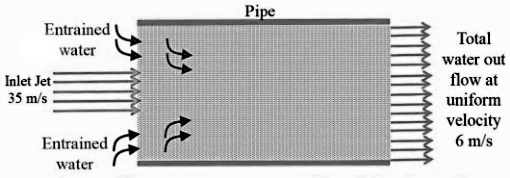 The flow rate of entrained water is _______litres/s (round off to two decimal places).
The flow rate of entrained water is _______litres/s (round off to two decimal places).
Ans: (130 to 134)
Applying continuity equation:
35 x 0.01 + q = 6 x π/4 x 0.322
q = 0.13255 m3/s
q = 132.55 lit/s
Q1: Water flows out from a large tank of cross-sectional area At = 1m2 through a small rounded orifice of cross-sectional area A0 = 1cm 2 , located at y = 0. Initially the water level, measured from y = 0, is H = 1m. The acceleration due to gravity is 9.8 m/s2 . [GATE ME 2021, SET-2]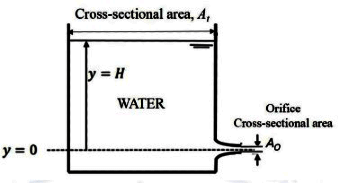
Neglecting any losses, the time taken by water in the tank to reach a level of y = H /4 is ________seconds (round off to one decimal place).
Ans: (2257 to 2259)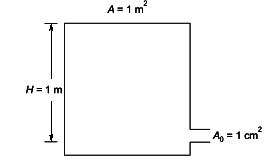
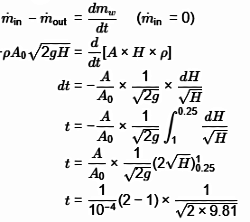
t = 22.58 s
[2013]
[2009]
|
56 videos|154 docs|75 tests
|
FAQs on GATE Past Year Questions: Flow Through Pipes - Fluid Mechanics for Mechanical Engineering
| 1. What are the main factors that affect flow through pipes? |  |
| 2. How do you calculate the head loss in a pipe due to friction? |  |
| 3. What is the difference between laminar and turbulent flow in pipes? |  |
| 4. How do you determine the appropriate pipe size for a given flow rate? |  |
| 5. What role does the Reynolds number play in flow through pipes? |  |




 |
|
















